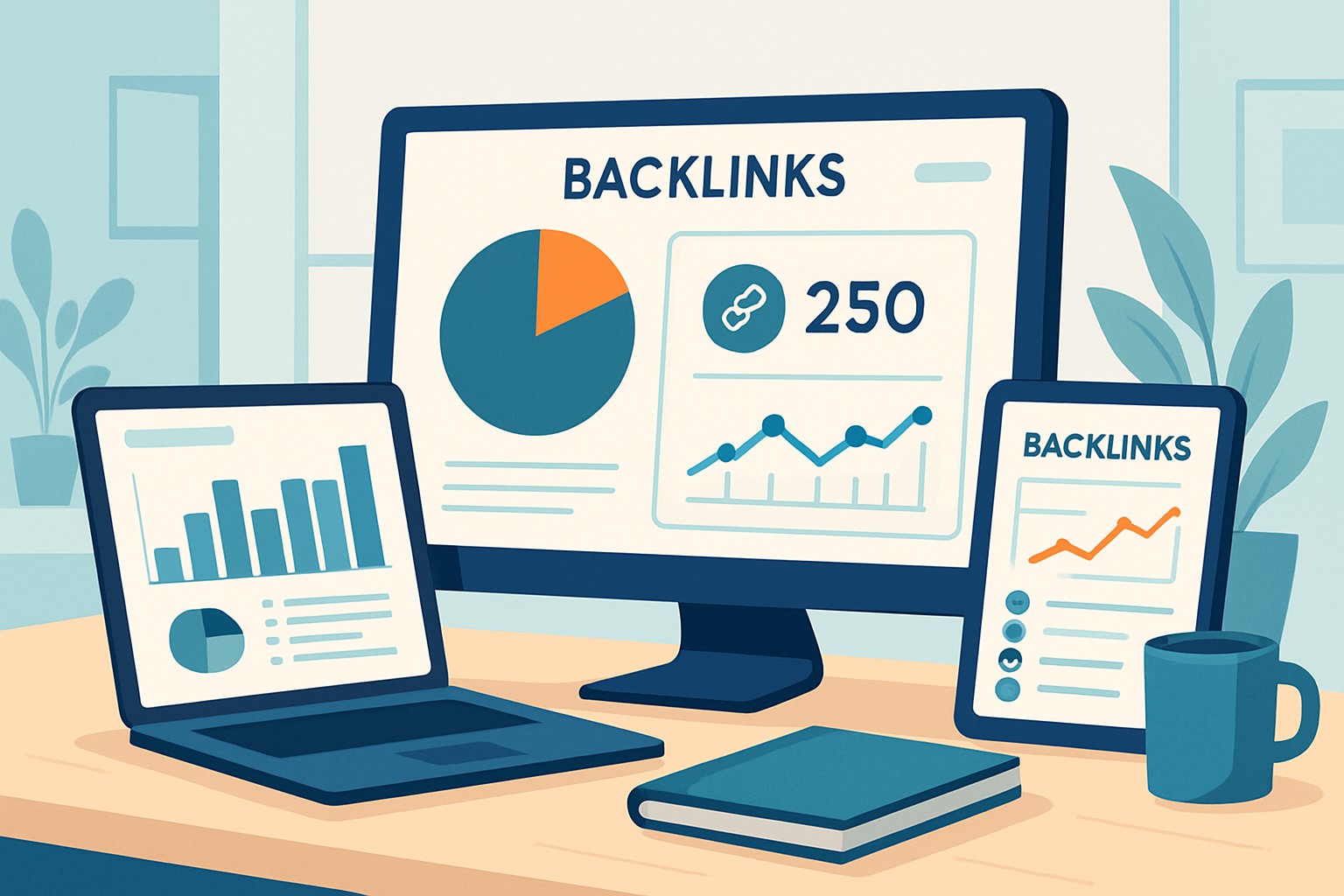
Best book for search engine optimization to improve your skills
Unlock your SEO potential by choosing the best book for search engine optimization. This guide break...

Moz has built a solid reputation for its link analysis tools though many SEO pros and marketers tend to explore alternatives that fit their budgets better or offer unique features. They also look for options that slide more seamlessly into their SEO workflows.
Moz really shines with its robust link analysis, thanks to a trusted backlink index and an interface that is pretty easy to navigate. It is not everyone's cup of tea. Pricing can feel a bit steep, especially for smaller businesses watching every penny. Some users want more frequent data updates or advanced features that do not make the cut in Moz’s plans.
Knowing the essential features that make link analysis tools effective can give you the confidence to navigate Moz alternatives without breaking a sweat. Keep your eye on tools that provide detailed backlink data updated regularly and reliable domain authority scores you can trust. Check how they assess spam and link quality and whether you can explore competitor backlink profiles—that's often where the gold is hidden. On top of that, consider available integrations and how easy the tool is to use.
A few tools really stand out as solid alternatives to Moz, each bringing its own unique strengths to the table. Semrush is especially notable for its massive backlink database and how smoothly it slots into a full-fledged SEO suite, making it a go-to for those tackling more complex SEO projects. Mangools tends to be more approachable and easy on the wallet, with a user-friendly design that suits everyone from beginners to mid-level users.
Peeking into these SEO tools reveals a nice mix of options balancing cost, features, and how user-friendly they are. Every platform has its own flavor, tailored for different needs and budgets, so there’s something for pretty much everyone.
| Comparison Points |  |  |  |
|---|---|---|---|
| Pricing | $119.95 to $449.95 per month across three plans that fit from solo operators to big fish enterprises | $99 to $249 monthly, spread across three main plans that won’t break the bank but offer solid value | $29 to $79 monthly, easily the most wallet-friendly pick among the tiered plans |
| Key Features | Keyword research, backlink analysis, site audits, and a content marketing toolkit that'll keep you busy for days | Offers keyword research, site audits, link analysis, and content optimization — all the essentials without fluff | Keyword research, SERP analysis, backlink analysis, and rank tracking — solid basics done right |
| Ease of Use | Generally user-friendly, though newbies might find themselves scratching their heads at first | A moderate learning curve that’s designed for SEO pros, so it’s not quite beginner-level but manageable | Super user-friendly, perfect for beginners who want to get the hang of SEO without banging their heads |
| Target Audience | Digital marketers, SEO specialists, enterprises, and agencies—basically anyone serious about their online game | SEO professionals, digital marketers, and businesses of all sizes looking to dig deep into their data | Bloggers, small businesses, SEO beginners, and digital marketers looking for no-nonsense tools |
| Integration Options | Limited integrations, mostly zeroing in on SEO and PPC tools, so don’t expect a sprawling app ecosystem | Fewer platform integrations compared to some rivals, but it keeps things neat and streamlined | Focused on core SEO features with limited integrations—keeps things simple and straightforward |
| Customer Support & Resources | Packed with training materials, responsive support, and updates that roll in like clockwork | Known for expert support, trusted industry insights, and detailed analytics that feel like your secret weapon | Regular updates, solid usability support, and ongoing improvements that make you feel looked after |
| Scalability & Plans | Catered to freelancers right up to large enterprises with plenty of room to customize as you grow | Best for small to medium businesses, though there’s room to upgrade as your needs grow | Aimed at individuals and agencies who want to grow without being overwhelmed by complexity |
| Go to Semrush Site | Go to Moz Site | Go to Mangools Site |



Semrush has earned a solid reputation for its massive and frequently updated backlink database. It provides detailed data that lets you dive deep into link profiles. As part of a full-fledged SEO toolkit it doesn’t stop at link analysis. You also get handy features like keyword research, site audits and competitive insights all wrapped up in one package. Plus its reporting tools and competitor backlink insights make smart link building and savvy SEO strategies feel much less like guesswork.
Semrush is a powerful, all-around SEO and digital marketing platform packed with features that seasoned marketers and agencies will appreciate. Sure, the cost and learning curve might give beginners or budget-conscious users pause, but the depth of data, competitor insights, and worldwide reach make it a strong contender—especially when you’re weighing options against the likes of Moz.
Digital marketing pros, SEO agencies, and businesses hunting for a robust set of tools to handle keyword research, competitive intelligence, and site optimization across various markets.
Mangools offers solid link analysis tools that strike a nice balance between being user-friendly and affordable. It provides accurate backlink data through a clean interface, making it a great fit for small businesses, bloggers and SEO newbies alike. While its backlink index might not be as massive as some heavy hitters, it makes up for it by keeping things simple without skimping on essentials.
Mangools is a smart, budget-friendly SEO suite that strikes a nice balance between ease of use and comprehensive functionality, making it a great fit for individuals and small to mid-sized businesses. It covers all the essentials—from keyword research to backlink analysis and rank tracking—without drowning users in complexity. Sure, it may lack some of the more advanced bells and whistles or integrations you’d find in higher-end platforms, but in my experience, it delivers solid value by combining straightforwardness with a robust feature set that tackles most SEO needs.
Digital marketers, bloggers, and small business owners who want an affordable, all-in-one SEO toolkit that won’t require a PhD to figure out. It offers clear, easy-to-use tools for keyword and backlink research, all without leaning heavily on deep customization or complex enterprise-level features.
Moz still holds its ground as a trustworthy choice, especially loved for its domain authority score and the refreshingly user-friendly Link Explorer tool. It is often the go-to for link analysis, delivering spot-on metrics and a handy spam score that’s great for sizing up backlink risks. Moz leans towards having a smaller backlink index and doesn’t update its data quite as often as some of the newer, flashier players in the field.
Moz stands out as a powerful, all-in-one SEO platform that professionals rely on for deep link analysis and thorough keyword research. Its rich feature set and strong industry cred are impressive, though the price tag and learning curve might give smaller outfits or SEO rookies a bit of pause. All in all, Moz is a solid pick for businesses and marketers aiming for a scalable, expert-level SEO solution, but some might lean towards more specialized or budget-friendly options.
SEO professionals, digital marketing teams, and businesses looking for a comprehensive, reliable SEO suite that can handle keyword strategies, link building, and site audits on a larger scale.

Visual comparison chart illustrating backlink index sizes and update frequency for Moz, Semrush, and Mangools.
Kick things off by setting a clear budget that covers not just the initial purchase but also any ongoing fees you might run into with link analysis tools.
Zero in on the key features you actually need—whether it’s how fresh the backlink data is or the depth of competitor analysis or the tool’s knack for spotting spam.
Give some thought to how vital it is for the tool to play nicely with your other SEO or marketing software and whether having an API is a must-have or just a nice-to-have.
Take a good look at how user-friendly each tool is and whether the learning curve feels like a gentle slope or a steep cliff to make sure your team can get rolling without pulling their hair out.
Don’t be shy about diving into free trials or demos to really get a hands-on feel for which tool fits your needs like a glove.
Keep an eye on how often backlink data is updated so you’re working with fresh, relevant info and not something that’s gathering dust.
Dig into the quality and availability of customer support especially if you think you’ll need a hand with setup or troubleshooting because a helping hand can make all the difference.
You’ll be better equipped to pinpoint which Moz alternative really clicks with your SEO goals and day-to-day needs. Take Semrush for example—it’s often a solid pick among moz alternatives if you want a hefty backlink database and built-in SEO tools though it comes with a steeper price tag. On the flip side, if keeping costs down and having a user-friendly experience are top priorities, Mangools offers excellent bang for your buck especially for those just starting out or running smaller operations.
17 articles published
Known for her strategic acumen and ability to distill complex concepts into actionable frameworks, Raven Merriweather empowers businesses to navigate the intricacies of Internet Marketing with confidence and clarity.
Read Pages
Unlock your SEO potential by choosing the best book for search engine optimization. This guide break...

Discover how Mangools helps you uncover high search volume yet low competition keywords with an easy...

Discover practical steps to find SEO entities that enhance your keyword research and improve search...

Unlock the power of SEO keywords tailored for software companies. This guide offers expert strategie...